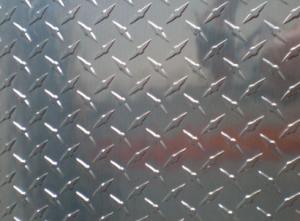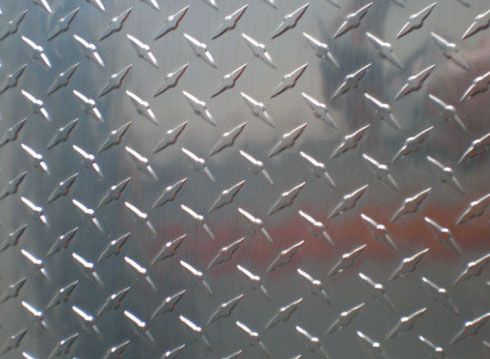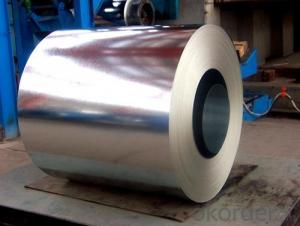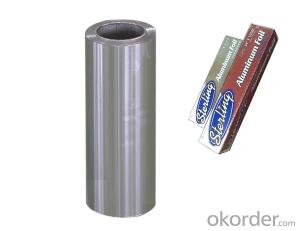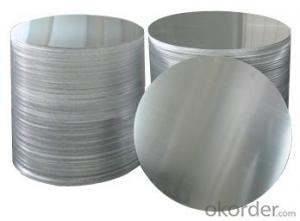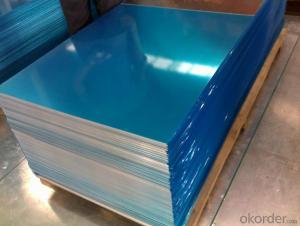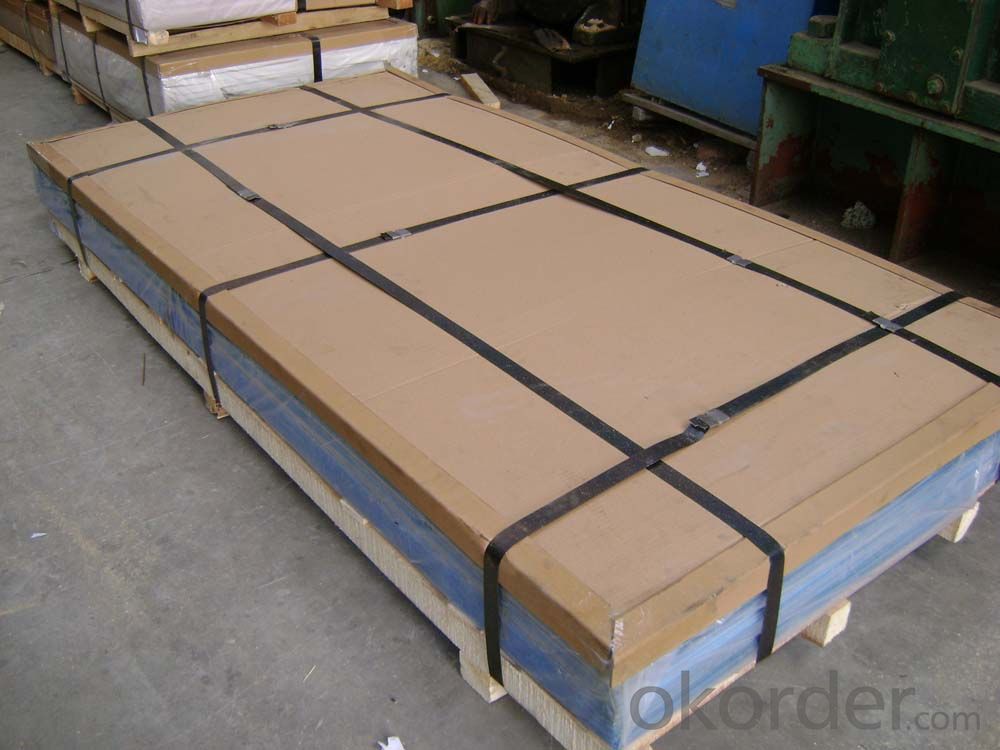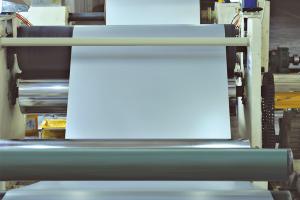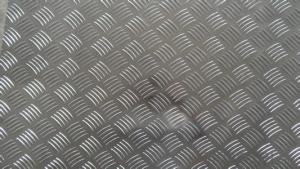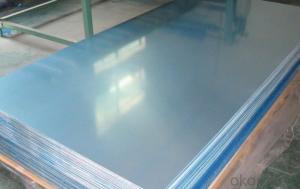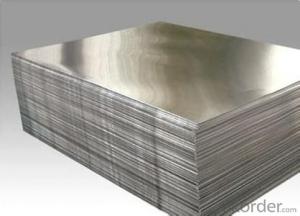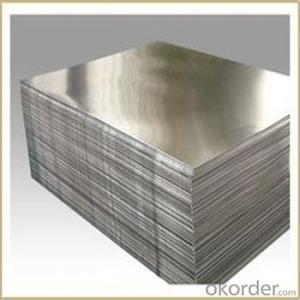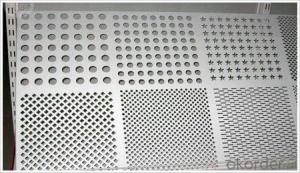Bright One Bar Aluminum Patio Cover Sheets 3003 H14
- Loading Port:
- Shanghai
- Payment Terms:
- TT OR LC
- Min Order Qty:
- 5 m.t.
- Supply Capability:
- 10000 m.t./month
OKorder Service Pledge
OKorder Financial Service
You Might Also Like
1.Structure of Bright One Bar Aluminum Sheet/Coil 3003 H14 :
Bright One Bar Aluminum Sheet/Coil 3003 H14 is widely used for decorative purposes in construction, packing and appliance. Bright One Bar Aluminum Sheet/Coil 3003 H14 is also very commonly used for anti-shippery purposes in vehicles and pulic places.
2.Main Features of the Bright One Bar Aluminum Sheet/Coil 3003 H14 :
• Beautiful parten
• Good anti-slippery quanlity
• High manufacturing accuracy
• High strength of extension and yield
• Well packaged
• No marks, no scratch, no excessive oil
3. Bright One Bar Aluminum Sheet/Coil 3003 H14
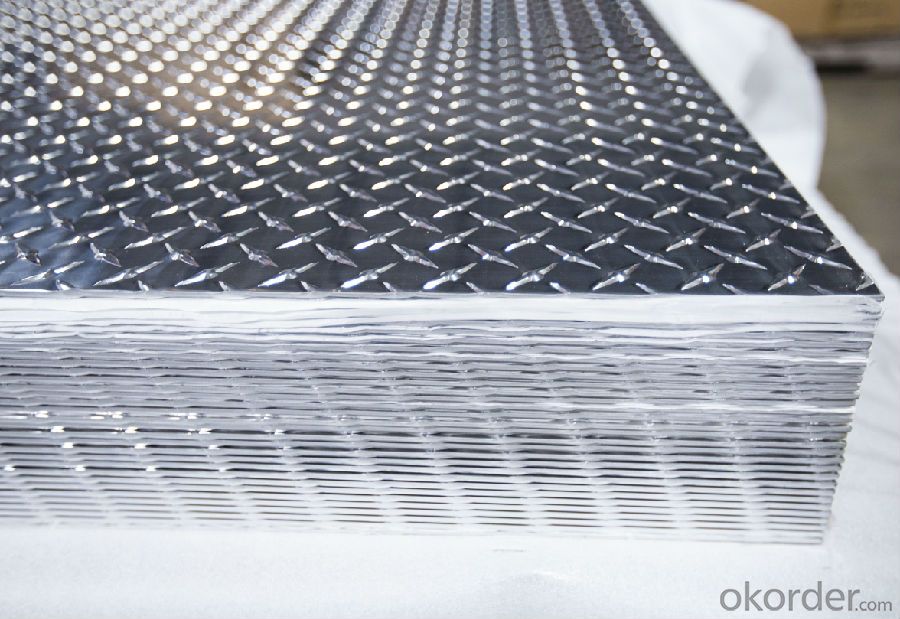
5.FAQ
We have organized several common questions for our clients,may help you sincerely:
① How about your company?
A world class manufacturer & supplier of aluminum coil and alloy blanks. Aluminum production base is comprised of 18 aluminum annealers, 10 coil and foil mills, 4 continuous production lines, 2 hot rolling production line and 3 prepainted lines.
Export 5000 tons per month to Asia, America and Middle East. Always do the best for our clients.
②Can you guarantee the quality of the products?
We are responsible for the quality of materials to get a long-term cooperation with clients in a reasonable period of time and we are glad to arrange and coordinate any third party inspection for you.
③What is the delivery time after purchase?
35 day after receiving client’s deposit or correct LC
- Q: Are aluminum sheets suitable for pharmaceutical packaging?
- Yes, aluminum sheets are suitable for pharmaceutical packaging due to their excellent barrier properties, light weight, and resistance to corrosion. They protect pharmaceutical products from moisture, light, and oxygen, ensuring their stability and extending their shelf life. Additionally, aluminum sheets can be easily molded into different shapes, making them a versatile choice for various packaging formats in the pharmaceutical industry.
- Q: Are 101 aluminum sheets resistant to corrosion?
- Indeed, 101 aluminum sheets display remarkable resistance to corrosion. This is attributed to aluminum's inherent ability to form an oxide layer on its surface upon exposure to oxygen, which serves as a formidable shield against corrosion and safeguards the metal from deterioration. Furthermore, the 101 aluminum alloy is meticulously engineered with superior properties that bolster its resistance to corrosion, surpassing other aluminum alloys in this regard. Consequently, when confronted with the need for corrosion resistance, 101 aluminum sheets stand as a dependable option.
- Q: This question asks for methods to determine if a building is utilizing high-quality aluminum sheets.
- <p>To determine if a building is using high-quality aluminum sheets, look for the following characteristics: the sheets should have a uniform and smooth surface without visible defects or impurities. Check for a strong and consistent thickness throughout the material. High-quality aluminum is also resistant to corrosion and should not show signs of rust or pitting. Additionally, the sheets should be lightweight yet rigid, indicating a high strength-to-weight ratio. You can also inquire about the manufacturer's specifications and certifications, as reputable suppliers will provide detailed information about the quality and composition of their aluminum sheets.</p>
- Q: Are aluminum sheets suitable for electrical applications?
- Yes, aluminum sheets are suitable for electrical applications. Aluminum is a highly conductive metal, and its use in electrical applications has become increasingly popular due to its numerous advantages. Firstly, aluminum is lightweight and offers excellent heat dissipation properties, making it an ideal choice for applications that require efficient thermal management. This is particularly important in electrical systems where heat can be generated, such as power transmission lines, electrical panels, and heat sinks. Secondly, aluminum sheets are highly corrosion-resistant. Unlike some other metals, aluminum forms a protective oxide layer on its surface, preventing further oxidation and corrosion. This makes it a reliable choice for electrical applications that are exposed to harsh environments or moisture. Additionally, aluminum is a cost-effective option compared to other metals commonly used in electrical applications, such as copper. It is readily available and has a lower price point, making it an attractive choice for manufacturers and consumers alike. However, it is important to note that aluminum has a lower electrical conductivity compared to copper. This means that for certain applications where high conductivity is crucial, such as in power transmission lines, copper may still be preferred. Nevertheless, advancements in technology and design have allowed aluminum to be used effectively in a wide range of electrical applications, from wiring and connectors to bus bars and transformers. In conclusion, aluminum sheets are indeed suitable for electrical applications, offering benefits such as lightweight construction, excellent thermal management, corrosion resistance, and cost-effectiveness. The final decision on whether to use aluminum or another material ultimately depends on the specific requirements and constraints of the electrical application in question.
- Q: This question asks for an explanation of the various grades of aluminum sheets and the distinctions between them.
- <p>Aluminum sheets are categorized into different grades based on their alloy composition, which affects their properties such as strength, formability, and corrosion resistance. Common grades include 1000 series (99.00% aluminum, soft and malleable), 2000 series (aluminum-copper alloys, strong and heat treatable), 3000 series (aluminum-manganese alloys, good formability), 5000 series (aluminum-magnesium alloys, good strength and corrosion resistance), and 6000 series (aluminum-silicone-magnesium alloys, good strength and extrudability). Each grade has specific applications based on its characteristics, with 1000 series used for general purposes, 2000 series for aircraft structures, 3000 series for decorative applications, 5000 series for marine environments, and 6000 series for structural components.</p>
- Q: Aluminum does not react with oxygen.Aluminum is a very unreactive metal.Aluminum forms a tough protective coating with oxygen.Aluminum tarnishes instead of corroding.If you could explain why it would be helpful!
- Aluminum forms a tough protective coating with oxygen. The coating of aluminum oxide is not porous enough to let further oxygen through it, so the aluminum underneath is protected from further corrosion.
- Q: Its been bugging me for years and i want to know why they say aluminum and not aluminium like it is spelt in the Oxford English dictionary and more importantly the universal periodic table, accepted by all countries, does anyone know why? I would like all opinions on this matter, if possible, thank you
- Aluminum okorder /... It’s clear that the shift in the USA from –ium to –um took place progressively over a period starting in about 1895, when the metal began to be widely available ... The American Chemical Society only adopted it in 1925, though this was clearly in response to the popular shift that had already taken place.
- Q: Is there any reason to believe flushing aluminum foil down the toilet is a bad idea?
- don't use caustic soda , once it hits water it can explode and go everywhere causing severe burns
- Q: Is it possible to utilize aluminum sheets in the construction of environmentally friendly buildings?
- <p>Yes, you can use aluminum sheets to create a green building. Aluminum is a sustainable material due to its recyclability and energy efficiency in production. It has a high recycled content rate, reducing the need for raw material extraction. Additionally, aluminum's lightweight nature can lead to reduced energy consumption in transportation and construction. Its durability and resistance to corrosion can extend the life of a building, further contributing to sustainability. However, it's important to consider the entire lifecycle impact, including the energy used in aluminum production, and to source aluminum responsibly to ensure a truly green building.</p>
- Q: Explain how the use of aluminum sheets can impact the visual appeal of a building.
- <p>Aluminum sheets can significantly enhance the aesthetic appearance of a building due to their versatility, durability, and modern look. They offer a sleek and contemporary design, available in various colors, finishes, and textures, allowing architects to create unique and visually striking facades. Their resistance to corrosion and weathering ensures that the building maintains its appearance over time, while their lightweight nature can contribute to innovative architectural designs. Additionally, aluminum sheets can be easily shaped and cut, enabling complex and intricate designs that add to the visual appeal of the structure.</p>
Send your message to us
Bright One Bar Aluminum Patio Cover Sheets 3003 H14
- Loading Port:
- Shanghai
- Payment Terms:
- TT OR LC
- Min Order Qty:
- 5 m.t.
- Supply Capability:
- 10000 m.t./month
OKorder Service Pledge
OKorder Financial Service
Similar products
Hot products
Hot Searches
Related keywords
